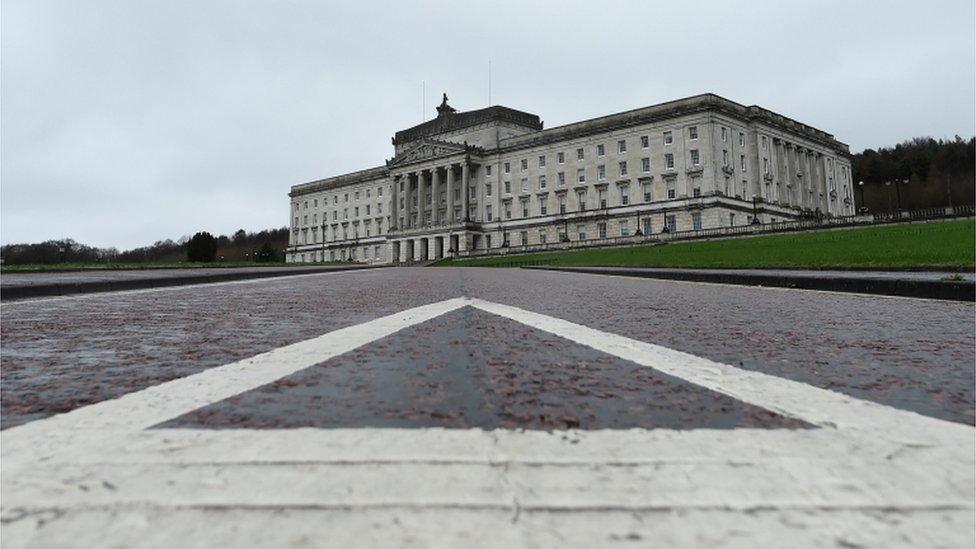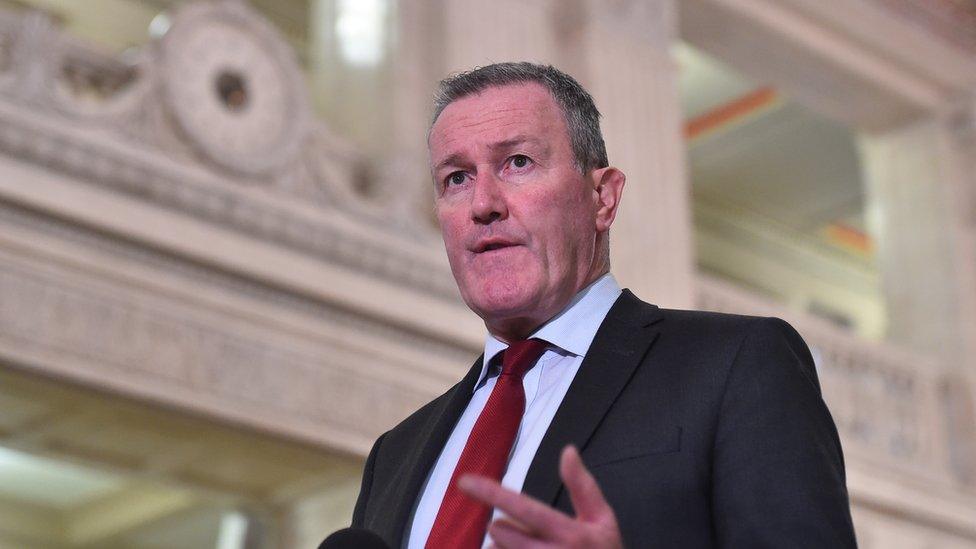Stormont: Paul Johnson to lead tax powers review commission
- Published

A commission to examine the possibility of giving Stormont more taxation powers is to be led by the economist Paul Johnson.
Mr Johnson is the director of the Institute for Fiscal Studies (IFS), a high-profile think tank.
Finance Minister Conor Murphy expects it will take about nine months for the commission to complete its work.
He said its conclusions will be published before next year's Northern Ireland Assembly election.
Northern Ireland is the only one of the devolved regions not to have conducted a comprehensive taxation review of this sort.
In Wales, the Holtham Commission reported in 2010 and in Scotland, the 2014 Smith Commission led to the devolution of some income tax powers.
'Important discussion'
Mr Murphy said: "As we hopefully begin to emerge from the pandemic, rebuilding and restoring our economy and wider society is the task in front of us.
"If we are to deliver on our social and economic priorities, it is vital that we have all the levers we need at our disposal.
"The work of the Fiscal Commission will inform that important discussion."

Conor Murphy wants the Independent Fiscal Commission to assess executive budgets
The other members of the commission are Iain McLean, a professor of politics at Oxford University, Prof Cathy Gormley-Heenan, the deputy vice-chancellor of Ulster University, and Dr Lisa Wilson, who is a senior economist at the Nevin Economic Research Institute.
Their remit is to examine powers which could enhance the assembly's fiscal responsibilities, increase its ability to raise revenues to sustainably fund public services, and provide additional policy instruments.
In 2015, the Northern Ireland Council for Voluntary Action (Nicva) commissioned a report which suggested that income tax, stamp duty, air passenger duty and landfill tax could be potential candidates for devolution.
It also concluded that the only policy which would feasibly raise significant amounts of extra revenue was to increase the basic rate of income tax.
The Northern Ireland Executive has had the power to cut corporation tax since 2015.
It has never used that power because public finance rules mean it would lead to a cut in the block grant from Westminster, which funds public services.
Related topics
- Published27 November 2014

- Published13 October 2020
